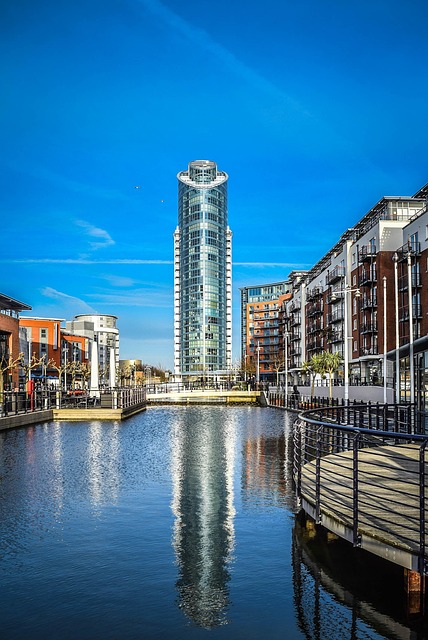Recovery Centers in Concord, NH: Navigating Co-Occurring Disorders Treatment
Recovery Centers Concord New Hampshire specialize in addressing co-occurring disorders, offering com…….
Over 15% US adults have used prescription painkillers not prescribed to them.
Welcome to an extensive exploration of the vital concept and implementation of Recovery Centers in Concord, New Hampshire. In today’s complex social landscape, these centers play a pivotal role in supporting individuals and communities grappling with addiction, mental health issues, and related challenges. This article aims to provide a comprehensive guide, delving into various facets of Recovery Centers Concord New Hampshire, their global impact, economic considerations, technological innovations, policy frameworks, and future prospects. By the end, readers will gain a profound understanding of this critical aspect of healthcare and its broader implications.
A Recovery Center, in the context of Concord, New Hampshire, is a specialized facility designed to offer comprehensive support and resources for individuals in various stages of recovery from substance use disorders, mental health issues, or both. These centers typically provide a range of services, including counseling, therapy, support groups, medical care, and aftercare programs. The core components often include:
The concept of recovery centers has evolved over several decades, reflecting a shift in societal attitudes towards addiction and mental health. Historically, treatment for these issues was often stigmatized and fragmented, with little emphasis on holistic care. Recovery Centers Concord New Hampshire represent a modern approach, emphasizing personalized, integrated care tailored to individual needs. This movement gained significant momentum in the late 20th century with the recognition that chronic addiction and mental illness are complex health conditions requiring long-term support and management.
Today, these centers serve as hubs for community recovery, offering a safe haven for those in need and contributing to overall public health and well-being. They play a crucial role in reducing the societal and economic burden of substance use disorders and mental illnesses by enabling individuals to lead productive, fulfilling lives.
The concept of recovery centers has spread globally, reflecting a growing recognition of their effectiveness. Many countries have adopted models inspired by Concord’s approach, adapting them to suit local cultural and healthcare systems. For instance, the UK’s ‘Recovery Colleges’ offer similar services, focusing on education, employment, and personal development alongside therapeutic support. Similarly, Australia’s ‘Recovery Centers’ provide comprehensive, community-based care, with a strong emphasis on peer support and social inclusion.
Several trends are shaping the future of recovery centers worldwide:
While the global trend is toward more inclusive and community-based recovery models, regional variations exist in terms of availability, funding, and service delivery:
| Region | Key Features | Challenges |
|—|—|—|
| North America | Strong focus on evidence-based practices, access to specialized services, robust support networks. | High costs of care, disparities in access due to geographic location and socioeconomic factors. |
| Europe | Diverse models with a strong community-based approach, emphasis on integration within primary healthcare systems. | Uneven distribution of resources, language barriers in some countries, cultural differences impacting treatment preferences. |
| Asia Pacific | Rapid growth in specialized facilities, increasing government investment in mental health services. | Stigma surrounding addiction and mental illness, limited access to quality care in rural areas. |
The recovery center market is a significant segment within the global healthcare industry, driven by rising substance use disorders and mental health issues worldwide. According to a report by Grand View Research, the global addiction treatment market size was valued at USD 345.1 billion in 2020 and is expected to grow at a CAGR of 7.9% from 2021 to 2028. This growth is fueled by increasing government initiatives, rising prevalence of chronic conditions, and growing acceptance of evidence-based treatments.
In New Hampshire, the market dynamics reflect a similar trend. The state’s Department of Health and Human Services reports a steady increase in individuals seeking treatment for substance use disorders over the past decade. This has prompted private investments in recovery centers, with some facilities partnering with local healthcare systems to ensure continuity of care.
Recovery centers contribute significantly to local economies through direct employment, indirect job creation, and increased tax revenue. A study by the National Institute on Drug Abuse (NIDA) found that for every dollar invested in treatment, there is a return of approximately $4.80 in reduced criminal justice costs, improved public health outcomes, and increased productivity.
Moreover, successful recovery centers can lead to:
Technology plays a pivotal role in modernizing recovery center services, making care more accessible, efficient, and personalized:
The future of technology in recovery centers holds immense promise:
The operation of recovery centers in Concord, New Hampshire, is governed by a comprehensive set of policies and regulations aimed at ensuring quality, safety, and ethical practices:
The regulatory environment plays a crucial role in shaping the development and operation of recovery centers:
Despite their benefits, recovery centers in Concord New Hampshire face several challenges:
To address these issues, several strategies have been proposed:
Overview: The Concord Recovery Initiative (CRI) is a community-based non-profit organization dedicated to providing holistic recovery support services. CRI offers a range of programs, including individual and group therapy, peer support groups, housing assistance, and vocational training.
Success Factors:
Outcomes: CRI has reported significant success in helping individuals achieve stable housing, gain employment, and maintain abstinence from substances. Their client satisfaction rates are consistently high, reflecting the effectiveness of their community-focused approach.
Setting: The Greater Manchester Recovery Center (GMRC) is a specialized facility offering medically managed recovery services for individuals with severe substance use disorders.
Key Features:
Achievements: GMRC has achieved remarkable outcomes, with high rates of patient retention and successful transitions to sober living arrangements. Their medical model has been credited with improving overall health and well-being among patients, reducing the risk of overdose and relapse.
The future of recovery centers in Concord New Hampshire looks promising, with several emerging trends and growth areas:
To capitalize on these trends and ensure sustainable growth:
Recovery Centers Concord New Hampshire represent a significant advancement in addressing substance use disorders and mental health challenges. This article has explored various facets of these centers, from their historical development and global impact to economic considerations, technological innovations, policy frameworks, and future prospects. The success stories presented highlight the transformative potential of tailored, community-based support.
As we look ahead, recovery centers have an exciting opportunity to embrace emerging trends, leverage technology, and foster stronger community partnerships. By doing so, they can enhance accessibility, improve outcomes, and contribute to creating more resilient, healthy communities in Concord, New Hampshire, and beyond.
Q: What are the main differences between a recovery center and a rehabilitation center?
A: While both provide treatment for addiction and mental health issues, recovery centers tend to focus on community-based support, personalized care, and long-term sustainability. Rehabilitation centers often emphasize intensive, short-term residential treatments with structured programs.
Q: How do I know if I or a loved one needs professional help?
A: If you are struggling with substance use, experiencing persistent feelings of sadness or anxiety, or having difficulty managing daily responsibilities, it may be time to seek help. Look for signs like losing interest in activities once enjoyed, changes in sleep patterns, or financial issues related to substance use.
Q: Are recovery programs covered by insurance?
A: Yes, many insurance plans cover a portion of addiction treatment and mental health services. It’s essential to confirm coverage with your insurer and understand the scope of benefits provided. The MHPAEA ensures equal coverage for these services.
Q: How can technology improve my recovery journey?
A: Technology offers numerous advantages, including remote access to counseling, convenient self-monitoring tools, and online communities for support. Apps and wearables can help track progress, provide reminders, and offer immediate assistance during challenging times.
Q: What role does the community play in supporting recovery?
A: Community support is vital for long-term recovery. Local organizations, friends, and family members can provide encouragement, accountability, and resources. Many recovery centers collaborate with community groups to create a supportive environment, enhancing the chances of successful outcomes.

Recovery Centers Concord New Hampshire specialize in addressing co-occurring disorders, offering com…….

Recovery Centers Concord New Hampshire offer tailored long-term sobriety programs combining individu…….

Recovery from substance abuse in Concord, New Hampshire, involves a multi-stage process starting wit…….